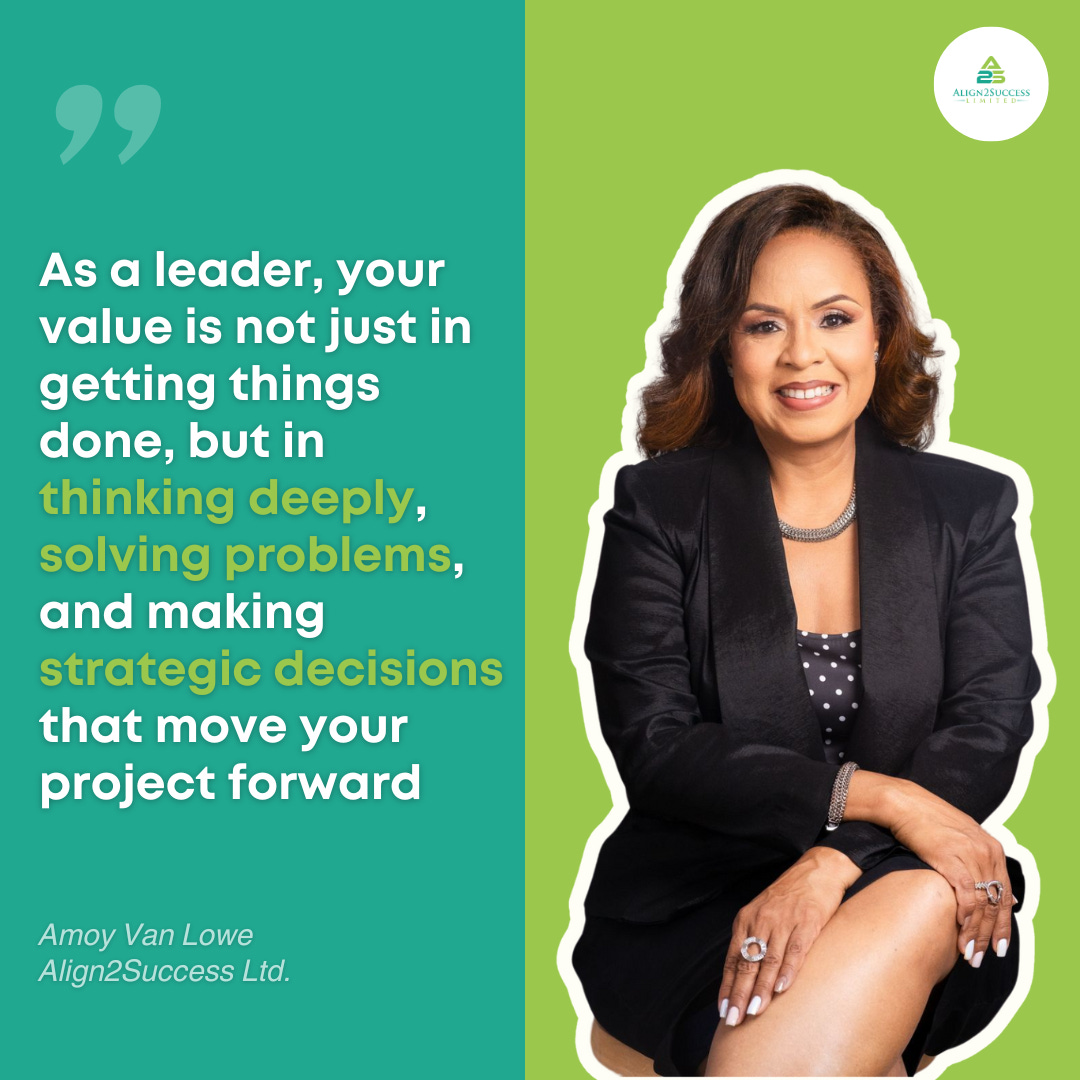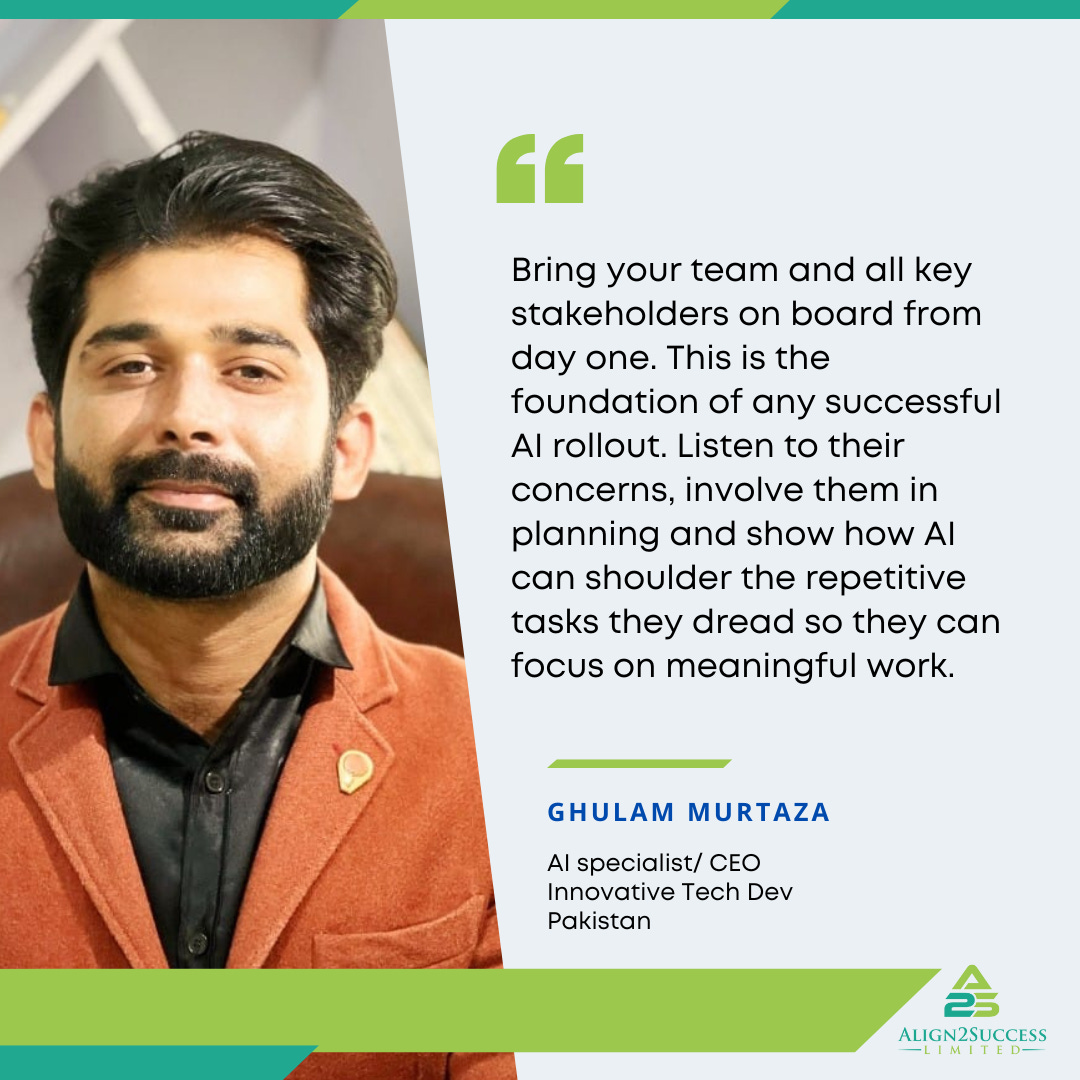Effective Implementation - Week 3 Recap
Setting Boundaries, Post-mortems and Coaching Your Team
Welcome to the Week 3 Recap of my May Series on Implementation!
This week, I continued my series on Implementation by sharing three practices that have made a real difference in how I lead and support teams.
These aren’t just theories!
I’ve seen the results when these habits are applied with consistency and intention.
Here’s a quick recap of what was covered:
Setting boundaries as a part of your Personal Leadership Strategy
As a leader, your value is not just in execution, but in thinking deeply, solving complex problems, and making strategic decisions that move your project forward.
This requires uninterrupted time to research and problem-solve. You need time for mental clarity, and the ability to focus on what truly matters.
This means learning to say no to tasks, meetings, or requests that don’t align with your priorities. Read more here.
The Importance of Post-Mortems
As a leader, offering regular, intentional feedback (like during post-mortems) does more than manage performance, it:
✅ Builds trust and strengthens your relationship with your team
✅ Creates space for continuous improvement
✅ Ensures projects are executed with excellence
✅ Prevents small issues from becoming big problems
✅ Reinforces good behaviors and keeps priorities clear
Post-mortems after key project milestones are one of the most effective tools I use to keep this feedback going. Read more here.
Coach Instead of Command
Coaching creates space for your team to understand the “why,” explore their own ideas, and take ownership.
Leaders who coach, help their teams develop critical thinking skills to make better decisions, and become solution oriented.
I want to encourage all leaders to develop their coaching skills, because coaching:
➡️Improves efficiency
➡️Builds trust and capability
➡️Helps your team grow in confidence
Read more here.
Special Features this week:
This week, I had the pleasure of featuring three individuals who embody what it means to implement with excellence. Gita Sivanandan reminded us of the importance of consistency and structure in execution. Ghulam Murtaza shared insights on the value of building momentum and staying focused on the mission. Javed Khan emphasized the role of empowering teams through clarity and purposeful action.
Each of them brought unique and practical perspectives that deepened the conversation on Implementation.
Have a look at their insights shared below!
Gita Sivanandan, Co-Founder and Managing Partner, GBL International
"𝑨𝒍𝒘𝒂𝒚𝒔 𝒏𝒂𝒎𝒆 𝒚𝒐𝒖𝒓 𝒕𝒓𝒂𝒏𝒔𝒇𝒐𝒓𝒎𝒂𝒕𝒊𝒐𝒏 𝒑𝒓𝒐𝒋𝒆𝒄𝒕—𝒄𝒍𝒂𝒓𝒊𝒕𝒚, 𝒗𝒊𝒔𝒊𝒃𝒊𝒍𝒊𝒕𝒚, 𝒂𝒏𝒅 𝒃𝒖𝒚-𝒊𝒏 𝒃𝒆𝒈𝒊𝒏 𝒘𝒊𝒕𝒉 𝒊𝒅𝒆𝒏𝒕𝒊𝒕𝒚."
Read more here.
Ghulam Murtaza, AI specialist/ CEO, Innovative Tech Dev
"𝑩𝒓𝒊𝒏𝒈 𝒚𝒐𝒖𝒓 𝒕𝒆𝒂𝒎 𝒂𝒏𝒅 𝒂𝒍𝒍 𝒌𝒆𝒚 𝒔𝒕𝒂𝒌𝒆𝒉𝒐𝒍𝒅𝒆𝒓𝒔 𝒐𝒏 𝒃𝒐𝒂𝒓𝒅 𝒇𝒓𝒐𝒎 𝒅𝒂𝒚 𝒐𝒏𝒆. 𝑻𝒉𝒊𝒔 𝒊𝒔 𝒕𝒉𝒆 𝒇𝒐𝒖𝒏𝒅𝒂𝒕𝒊𝒐𝒏 𝒐𝒇 𝒂𝒏𝒚 𝒔𝒖𝒄𝒄𝒆𝒔𝒔𝒇𝒖𝒍 𝑨𝑰 𝒓𝒐𝒍𝒍𝒐𝒖𝒕. 𝑳𝒊𝒔𝒕𝒆𝒏 𝒕𝒐 𝒕𝒉𝒆𝒊𝒓 𝒄𝒐𝒏𝒄𝒆𝒓𝒏𝒔, 𝒊𝒏𝒗𝒐𝒍𝒗𝒆 𝒕𝒉𝒆𝒎 𝒊𝒏 𝒑𝒍𝒂𝒏𝒏𝒊𝒏𝒈 𝒂𝒏𝒅 𝒔𝒉𝒐𝒘 𝒉𝒐𝒘 𝑨𝑰 𝒄𝒂𝒏 𝒔𝒉𝒐𝒖𝒍𝒅𝒆𝒓 𝒕𝒉𝒆 𝒓𝒆𝒑𝒆𝒕𝒊𝒕𝒊𝒗𝒆 𝒕𝒂𝒔𝒌𝒔 𝒕𝒉𝒆𝒚 𝒅𝒓𝒆𝒂𝒅 𝒔𝒐 𝒕𝒉𝒆𝒚 𝒄𝒂𝒏 𝒇𝒐𝒄𝒖𝒔 𝒐𝒏 𝒎𝒆𝒂𝒏𝒊𝒏𝒈𝒇𝒖𝒍 𝒘𝒐𝒓𝒌. 𝑾𝒉𝒆𝒏 𝒚𝒐𝒖 𝒎𝒂𝒌𝒆 𝒕𝒉𝒆𝒎 𝒇𝒆𝒆𝒍 𝒕𝒉𝒆𝒚 𝒂𝒓𝒆 𝒈𝒂𝒊𝒏𝒊𝒏𝒈 𝒏𝒆𝒘 𝒔𝒌𝒊𝒍𝒍𝒔 𝒂𝒏𝒅 𝒈𝒓𝒐𝒘𝒊𝒏𝒈 𝒂𝒍𝒐𝒏𝒈𝒔𝒊𝒅𝒆 𝒕𝒉𝒆 𝒕𝒆𝒄𝒉𝒏𝒐𝒍𝒐𝒈𝒚, 𝒓𝒆𝒔𝒊𝒔𝒕𝒂𝒏𝒄𝒆 𝒕𝒖𝒓𝒏𝒔 𝒊𝒏𝒕𝒐 𝒆𝒙𝒄𝒊𝒕𝒆𝒎𝒆𝒏𝒕 𝒂𝒏𝒅 𝒈𝒆𝒏𝒖𝒊𝒏𝒆 𝒑𝒂𝒓𝒕𝒏𝒆𝒓𝒔𝒉𝒊𝒑."
Read more here.
Javed Khan, Head - Group Facilities and Property Development, First Citizens
"𝑰'𝒗𝒆 𝒍𝒆𝒂𝒓𝒏𝒆𝒅 𝒕𝒉𝒂𝒕 𝒔𝒖𝒄𝒄𝒆𝒔𝒔𝒇𝒖𝒍 𝒊𝒎𝒑𝒍𝒆𝒎𝒆𝒏𝒕𝒂𝒕𝒊𝒐𝒏 𝒅𝒐𝒆𝒔𝒏’𝒕 𝒉𝒂𝒑𝒑𝒆𝒏 𝒃𝒚 𝒄𝒉𝒂𝒏𝒄𝒆, 𝒊𝒕’𝒔 𝒅𝒓𝒊𝒗𝒆𝒏 𝒃𝒚 𝒄𝒍𝒂𝒓𝒊𝒕𝒚, 𝒂𝒄𝒄𝒐𝒖𝒏𝒕𝒂𝒃𝒊𝒍𝒊𝒕𝒚, 𝒂𝒏𝒅 𝒂𝒍𝒊𝒈𝒏𝒎𝒆𝒏𝒕."
Read more here.
Thanks for following along this week as I shared key habits that support strong implementation.
I’ll be wrapping up the series next week with Week 4, and then kicking off a brand-new leadership series in June.
Make sure to follow me here on LinkedIn so you don’t miss a post.
Looking for more resources to support your leadership journey?
✅ Work with me
🎯Free Emotional Intelligence Challenge for Leaders
📋 Download the Free Readiness Checklist Template
See you soon for Week 4. Let’s keep growing.
Courageously,
Amoy





